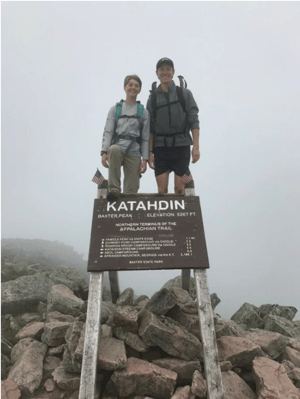 When Malia Obama decided to take a gap year before enrolling at Harvard University, the world took notice. “The Malia Effect” means that scores of high school seniors now consider deferment at their university of choice, taking a break from the “education treadmill” to do something different before getting back on and running for another four years. Postponing Harvard to spend time with family and travel to Bolivia and Peru through gap year program “Where There Be Dragons,” Malia reminded us that time off can be time well spent.
When Malia Obama decided to take a gap year before enrolling at Harvard University, the world took notice. “The Malia Effect” means that scores of high school seniors now consider deferment at their university of choice, taking a break from the “education treadmill” to do something different before getting back on and running for another four years. Postponing Harvard to spend time with family and travel to Bolivia and Peru through gap year program “Where There Be Dragons,” Malia reminded us that time off can be time well spent.
In “Before College, Take a Gap Year” (Education Week, May 17, 2016), David Santulli writes, “A gap year provides a creative disruption to peel away the layers of the self, discover new passions, develop new skills, expand perspectives and grow as a student.” Not simply a 20th century invention, he equates gap years to the walkabouts of the Aboriginal Australians or the hero’s journey chronicled throughout literature. One must understand self to be able to grow and serve.
Over the years, Tabor graduates have used the gap experience in myriad ways. Some take a practical approach and seek paying jobs in order to save for tuition. Others work on research vessels in the waters of San Juan, travel to South America to teach English, or volunteer as City Year AmeriCorps members. My own daughter took a gap year, participating in a program sponsored by the English-Speaking Union, where she attended boarding school in the UK. It was an opportunity for her to travel and learn in a different environment. More than that, she stretched herself to leave the small campus where she grew up to gain perspective on and an appreciation for the larger world. The American Gap Association defines it as a “distinct experiential education activity.” Students can volunteer, intern, or become what AGA terms as “free radicals,” those who use the time to explore newly-discovered passions or interests. The greatest benefit is the self-discovery that accompanies charting one’s own course.
Some colleges, aware of the benefits, are building gap experiences into their admissions decisions. Harvard University asks students to consider a gap year, and even proposes it in their acceptance letter. Tufts University’s 1+4 Bridge Year Service Learning Program provides accepted Tufts students the opportunity to “learn from a transformational year of full-time community service before beginning their academic studies.” Middlebury College, a forerunner in this regard with the establishment of their February admissions program, encourages students to think creatively about their school progression. Greg Buckles, the Dean of Admission at Middlebury, says, “As earning admission to a top college has more and more become an end in itself, and not just a means to an end, we can easily lose sight of the primary goal of our education: to discover what it is we truly care about and want to pursue further, and thereby come as close as possible to realizing our own potential…The students who enroll here in February typically bring more to their college experience and, as a result, derive more from it.” Class of 2017 graduate Jackson Hawkins took Middlebury’s advice. A “Feb Fresh,” Jackson spent the fall and winter hiking the Appalachian Trail southbound with fellow classmate Lulu Russell, who will attend MIT this fall. (Click here to read Jackson's blog post). When Jackson headed to Midd this past February, Lulu went on to ice climb and back country ski in New Hampshire and Maine with the MIT Outing Club, and then she was off to surf in Costa Rica while improving her Spanish. Lulu said, “I found through taking a year off that I could reevaluate my relationship with learning outside of school. Once I was away from classes, I could read books and do my own research into subjects that interested me and found that I really do enjoy learning when I'm not under the pressure of homework and tests. While hiking, I read Moby Dick, practiced my Spanish listening comprehension and speaking skills, researched particle physics on my own, and started doing my own reading into current events and how they relate to our history and the workings of our government. I think that taking the year off gave my brain a much-needed refresh and allowed me to figure out that I do enjoy learning.”
But Lulu cautions students to have a plan and to know what they want to get out of the year. “I've heard from other students on gap years that going into it without any kind of plan can turn out to be miserable.” Jackson added, “You don’t need to go out and do something huge (like hiking the AT), and it’s all right to hang out at home and work at a bagel shop, as several of my friends did. It’s nice to have some weeks that you don’t have anything big planned, but it can get kind of boring or almost sad if it’s for too long. Have something to give your day structure.” So, be thoughtful, be creative, and have a plan.
Resources –
American Gap Association, http://www.americangap.org/
USA Gap Year Fairs, http://usagapyearfairs.org/
Go Overseas, https://www.gooverseas.com/
Go Abroad, http://www.goabroad.com/
Gap Year American Style and the Gap Year Advantage by Karl Haigler and Rae Nelson
The Complete Guide to the Gap Year by Kristin White
Gap to Great by Andrea Wein









